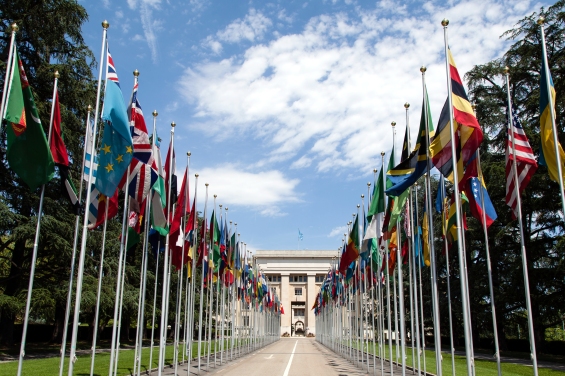In periods of crisis, such as the one presently affecting the planet and the human species, one finds frequent appeals for a better understanding and legitimation of the role of science in dealing with crisis phenomena. The social sciences, in particular, frequently struggle with demonstrating their degree of relevance in providing the theoretical and practical tools to address crisis processes.
And yet, the very character of these crisis conditions is, in itself, social. The problems affecting the current stage of human history, from environmental degradation, over-population and asymmetries of development, to resource conflicts and ethnic tensions can, in most of cases, be traced to the uncontrolled, un-regulated and not properly understood character of the advancing global networks of interconnection and interdependence that are being established between people, across different societies and regions of the planet, at the most varied levels, be it technological, social, economic, political or environmental.
As humanity becomes increasingly more interconnected, so too the potential for the emergence of unplanned social processes and tensions between people, and between them and their environment, increases, as different societies compete with each other for resources, power and social opportunities. These unplanned social processes are not controlled or wished for by any particular human group, and yet they drag people and their societies into frequently violent and damaging patterns of interaction with each other, as if they possess a force and agency of their own.
Under these conditions of highly uncontrolled interconnection the role of the social sciences becomes all the more important. They can be the providers of means of orientation, i.e. of theoretical frameworks capable of capturing the predominant patterns of these unplanned social processes in ways that make them more intelligible to people, and so enable human beings to better orientate in the midst of these processes, and understand how they can potentially come to acquire greater conscious and collective control over them, without reproducing, or producing new, forms of oppression and domination. International Relations (IR), as a scientific discipline, appears as particularly important in this context.
Given its disciplinary vocation and object of study, IR is particularly apt for the analysis of the current high stage of human global interconnection. Namely, it is inherently directed towards understanding and explaining global processes of interconnection in international society, to develop multi-level analyses synthesizing insights from multiple dimensions and disciplines, and to develop research which covers, and is aware of, ‘humanity’ as a level of analysis in itself.
The role of IR as a provider of means of orientation has become all the more evident with the ‘critical turn’, which moved the discipline away from the a-historical approaches of neorealism and neoliberalism and, through the appropriation of political and social theory, reinforced its awareness of the importance of studying the development of human interconnection in the long-term perspective, as well as the need for concerns with normative foundations, with the elimination of forms of oppression and domination and with disciplinary ‘reflexivity’.
However, in order to further confirm its role as a means of orientation, IR needs to further consolidate its disciplinary vocation as a synthesis-driven discipline. It needs to constitute itself as the field where a high-level synthesis can occur, of the insights into these social processes, arising from several different scientific disciplines, perspectives, and cultural and theoretical traditions. Various disciplines including not only social sciences such as world history, politics, economics, psychology or anthropology but also natural sciences, such as ecology, biology or neurology.
Under present historical conditions of high global interconnectivity, IR thus appears as the scientific field where a dialogue across different disciplines and cultural contexts becomes possible; one that enables the development of a common, pluralist framework, directed towards the understanding of the human condition, its long-term historical development, and the immanent paths that lay before humanity. Only by constituting itself as the discipline enabling such higher synthesis of human knowledge, can IR fulfil its disciplinary vocation of providing orientation for humanity as to how to acquire a more conscious and controlled navigation of its potential futures.
.jpg) André Saramago is a PhD candidate at Aberystwyth University with a particular interest in Critical Theory.
André Saramago is a PhD candidate at Aberystwyth University with a particular interest in Critical Theory.

